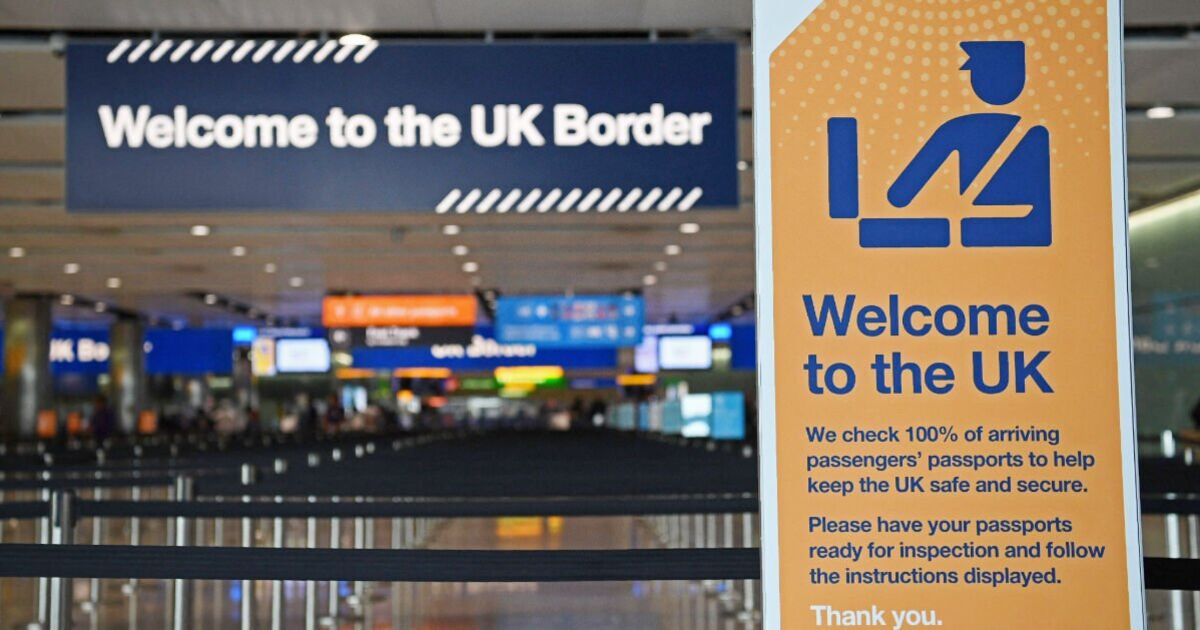

British tourists have been warned they could face fines of up to £5,000 if they try to bring certain items through UK customs. Even if they purchased the items at duty-free shops, travellers could be forced to hand over a hefty sum of cash.
Over the last month, the the UK Government has introduced stringent new rules to manage an outbreak of severe disease in some parts of Europe. This means travellers arriving in the UK from a number of European countries are required to ensure they are not carrying prohibited items in order to protect the country from outbreaks. Currently, holidaymakers arriving from countries including Spain, France, Italy and Greece must make sure their luggage is free from banned items.
Anyone found to be bringing in prohibited items, which include sandwiches, cheese, cured meats, raw meats and milk, will be intercepted at the border.
The Government has made the import of any of these products from EU nations into the UK illegal for the purposes of disease control, with the rules applying whether they are unpacked, packaged or bought in duty-free stores.
Those caught at the border with these foods will be required to forfeit them or risk having them confiscated and disposed of.
An official said: "In serious cases, those found with these items run the risk of incurring fines of up to £5,000 in England."
Government policy has been spurred by the recent outbreak of foot and mouth disease (FMD), which has seen an increase in infections across Europe.
Officials confirmed the disease poses no threat to humans, and that restrictions are in place to safeguard British livestock, support the farming community and reinforce the UK’s food security.
FMD is a highly infectious viral disease which affects cattle, sheep, pigs and other cloven-hoofed animals including wild boar, deer, llamas and alpacads.
The disease can lead to decreased productivity among animals and restrictions on international markets.
New restrictions are in place now but apply only to travellers arriving in Great Britain, meaning they will not be enforced on personal imports arriving from Northern Ireland, Jersey, Guernsey or the Isle of Man.
Farming Minister Daniel Zeichner said: "This government will do whatever it takes to protect British farmers from foot and mouth. That is why we are further strengthening protections by introducing restrictions on personal meat and dairy imports to prevent the spread of the disease and protect Britain's food security."
UK deputy chief veterinary officer for international and trade affairs Dr Jorge Martin-Almagro said: "Following the detection of foot and mouth disease in EU countries resulting in a rising risk of introduction into Great Britain, we have extended restrictions on the personal imports of food products that pose a risk in FMD transmission.
"Robust contingency plans are already in place to manage the risk of this disease to protect farmers and Britain's food security.